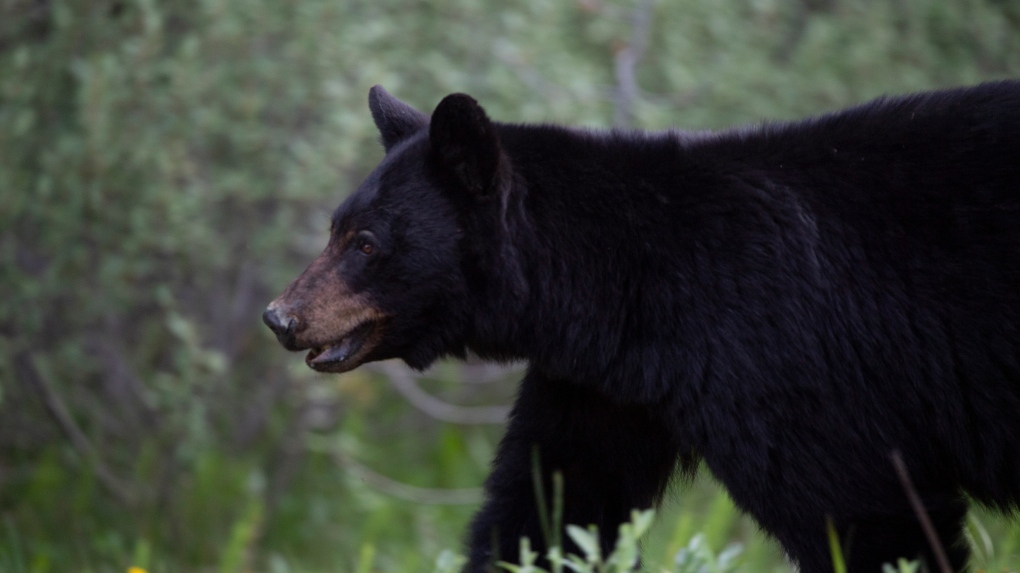OTTAWA -
Canada's financial intelligence agency is stepping up the fight against the illicit wildlife trade by taking aim at the criminals who reap big profits from the global racket.
The Financial Transactions and Reports Analysis Centre of Canada, known as Fintrac, is encouraging banks and other enterprises to be on the lookout for telltale signs that business dealings could involve the illegal trafficking of animals and exotic plants.
Fintrac has published a new operational alert aimed at gleaning useful intelligence to combat a major international crime that generates approximately US$20 billion in annual proceeds.
The alert says Canadian bears are poached for their bile, claws and paws, which reap large sums on the traditional medicine market at home and abroad.
Fintrac warns that other wild animals in Canada are hunted for their fur and sold globally as trophies or other decorative products.
Species at risk of being targeted include cougars, geese, lynx, moose, crabs, eels, lobsters, narhwals, turtles and wolves.
There is demand in Canada for wildlife and animal parts from abroad such as reptiles, rhinoceros horns, shark fins, endangered birds and orchids.
Fintrac tries to detect cash linked to money laundering by combing through a steady stream of data from banks, insurance companies, securities dealers, money service businesses, real estate brokers, casinos and others.
Fintrac then discloses intelligence to police and security partners for use in their investigations.
The operational alert was developed in support of Project Anton, an international partnership designed to build awareness of the threat and target illegal proceeds. It is named in honour of Anton Mzimba, former head of security at the Timbavati Private Nature Reserve in South Africa, who was murdered last year.
The project is led by Scotiabank and supported by The Royal Foundation's United for Wildlife network, Fintrac, the South African Anti-Money Laundering Integrated Task Force, Western Union and several other government, law enforcement and non-governmental organizations.
The goal is to work together on a problem that is truly international in scope, said Stuart Davis, a Scotiabank executive vice-president. "We think by focusing on this, we can truly make an impact and a difference."
A Fintrac examination of about 200 suspicious transaction reports related to the illegal wildlife trade between 2011 and 2022 revealed that the majority involved the suspected illicit importation of flora and fauna into Canada, particularly from China and sub-Saharan Africa.
The reports also indicated possible shipments of wildlife from Canada to countries including the United States and China, the agency says.
The illegal importation of exotic wildlife often starts with a Canadian trader who orders wildlife through a co-ordinator located, for example, in Australia, Asia or Africa, the alert says.
"The co-ordinator manages all aspects of an illegal trade operation required to source wildlife for the Canadian trader including the engagement of poachers, breeders, traders, money mules and couriers located in their country."
Wildlife is transported to a courier who is paid to ensure movement of animals to the Canadian trader, Fintrac says.
"Transportation can be indirect, through the postal service or transportation companies often funded with cash, or directly by couriers who conceal wildlife in their luggage or their person when travelling to Canada."
The Canadian trader might then advertise the trafficked animals for sale on a website or through social media.
Investigations and prosecutions to date have often been directed "at the small guys," such as poachers, not those making millions from the illicit wildlife trade, said Xolisile Khanyile, director of South Africa's Financial Intelligence Centre.
Tracking the big players through financial transactions can help disrupt organized crime, she said. "If you only touch the lower guys, the kingpins will keep on replacing them."
Individuals involved in the illegal export of wildlife from Canada were receiving funds from people or organizations involved with animals, such as pet stores and zoos, often located in the U.S. or overseas, the Fintrac alert says.
Remittance information for these funds sometimes referred to species or animal parts of concern.
Suspicious transactions included excessive spending at postal services, shipping entities and animal logistics services, along with purchases of cages and freight equipment.
Fintrac warns that the circulation of animal parts increases the chances of disease transmission and can be a path for future pandemics.
The illegal wildlife trade is also a growing threat to the global environment and biodiversity, imperilling endangered species and threatening fragile habitats, communities and livelihoods, the agency says.
While an initial goal is to disrupt the organized criminals behind the trade, a long-term barometer of the project's success will be ensuring our grandchildren's grandchildren will still be able to appreciate rhinos and other exploited species, said Barry MacKillop, Fintrac's deputy director of intelligence.
"So I think there's two sides to this success that I'm looking for, one much longer term that will outlive me."
This report by The Canadian Press was first published Jan. 31, 2023.






































